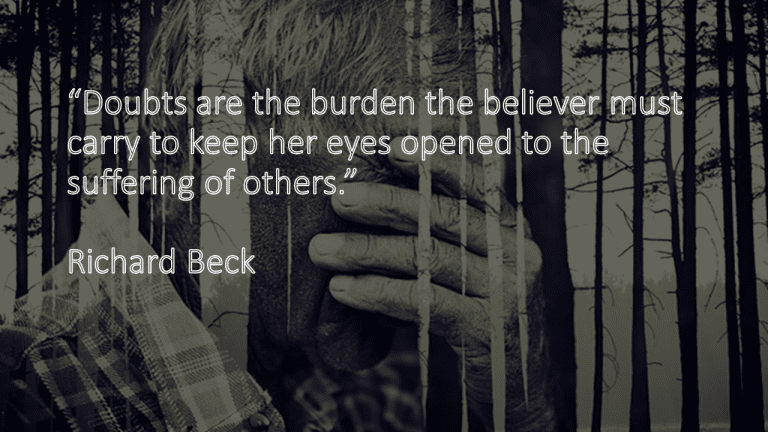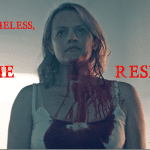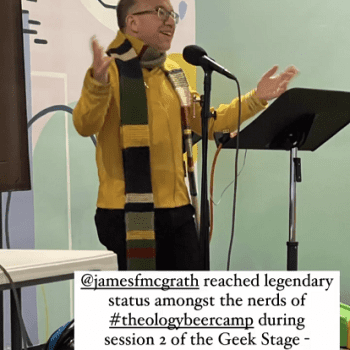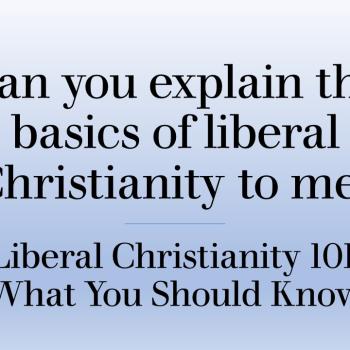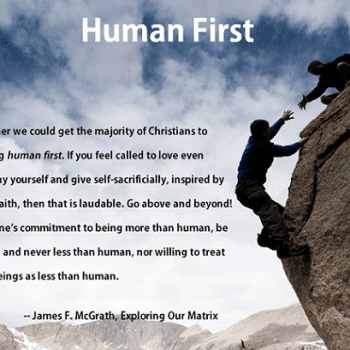Richard Beck wrote in a recent blog post:
Certainty, conviction, and dogmatism reduces our anxiety in the face of life. Having all the answers feels good. That’s the upside. The downside is that certainty, conviction, and dogmatism makes you suspicious and wary toward people who have different beliefs. And that suspicion sows the seeds of intolerance.
In contrast, if you don’t have all the answers in the face of uncertainty and tragedy, if you can’t tie a neat theological bow on top a cancer diagnosis or a hurricane, there is an emotional price to be paid. You will carry a burden of anxiety. Meaning will be harder to secure. Life will be more uncertain and perplexing.
But there is an upside here. If your questions outweigh your answers, you’re in a much more open posture toward people who have different beliefs. If you don’t have all the answers, maybe they can be of help. In short, doubt can make you more hospitable.
He continues with a quotation from his book The Authenticity of Faith which explores this topic further:
Perhaps, then, in the final analysis, faith, dogmatically understood, must be traded off for love. Doubts are the burden the believer must carry to keep her eyes opened to the suffering of others. It is as Moltmann described it, “The more a person believes, the more deeply he experiences pain over the suffering in the world.” What, then, might be the ultimate proof of the authenticity of faith? Perhaps it is as simple as St. Paul suggested in the First Epistle to the Corinthians:
And now these three remain: faith, hope and love. But the greatest of these is love.
What Beck wrote resonated profoundly with a conversation I had the night before reading his words, about the burden it was to have to fight with others to show oneself to be in the right about doctrinal matters. It also connects with what Michael Spencer wrote in 2009 about needing to get rid of some of our theology. Here is an excerpt:
When I discovered that God wasn’t going to stop something that I believed with all my heart and mind he had to stop, I was really pulled up short. My “map” was well worn with 30+ years of telling who I was and what God was supposed to do for me.
And now, I was discovering that my map was flawed. I’d believed it, and I had a choice. I could deny what was happening around me, in me and in others.
Or I could throw out some theology.
That meant admitting some of my teachers were wrong. Or at the least, didn’t know all there was to know.
It meant that some of what I was sure God had showed to me wasn’t God at all. It was me, or someone else.
I was wrong. My theology was wrong. My collection of Bible verses was wrong.
I hadn’t quite arrived. I didn’t have all the answers.
Part of my misery in the situation I was facing was my collection of theology.
There’s a moment when you realize things aren’t as certain as you thought they were. It’s a scary moment, and you want to blame someone. This collection of verses, statements and opinions was supposed to keep this from happening. The right theology was supposed to keep the sky from falling; it was supposed to keep the trap doors from opening up under my feet.
It makes more than a few people angry to hear that following Jesus is less like math and more like white water rafting. It’s less like writing down the right answers to a test and more like trusting yourself into the hands of a doctor. It’s less like standing on concrete and more like bungee jumping.
It’s less like what you think it is and lot more like something you never thought about.
See too Ben Corey’s post about the decision that confronts each of us as to whether to allow circumstances of hardship to harden us or soften us.
Of related interest see Andreea Nica’s article in Religion Dispatches on the cost that is often paid by those who leave fundamentalist religion.
